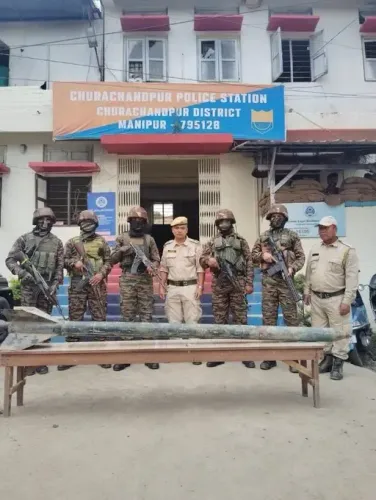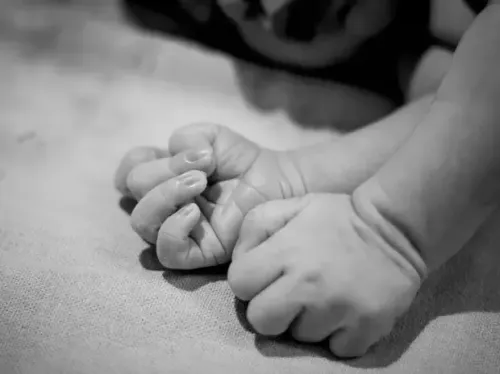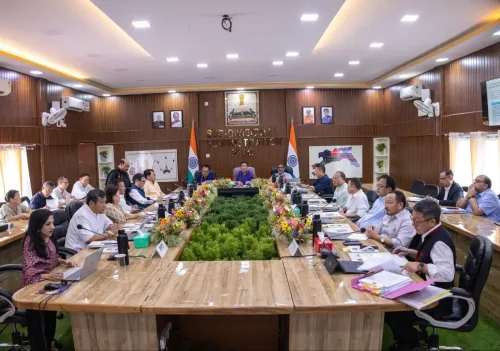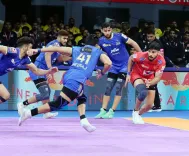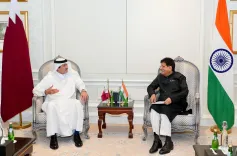Was the Emergency a Dark Chapter for Indian Democracy?
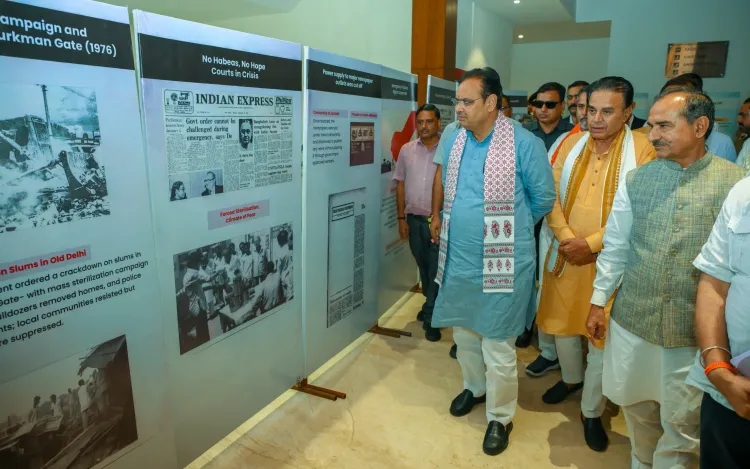
Synopsis
Key Takeaways
- The Emergency was a pivotal moment in Indian democracy.
- Thousands suffered repression and imprisonment.
- The bravery of democracy fighters is crucial to our history.
- PM Modi's initiatives aim to reinforce democratic values.
- Understanding this history is vital for future generations.
Jaipur, June 25 (NationPress) Rajasthan Chief Minister Bhajan Lal Sharma on Wednesday referred to the Emergency, which was enforced on June 25, 1975, as a “dark chapter” in the democratic narrative of India.
Speaking at the ‘Indian Democracy’s Black Chapter – Constitution Hatya Diwas 2025’ event at the Constitution Club, he remarked that the government of the time restricted citizens' fundamental rights and curtailed press freedom by implementing draconian laws such as MISA and DIR.
“This Emergency not only halted democracy but also subjected thousands to oppression. Approximately 1.4 lakh individuals were incarcerated without trial, including notable figures like former Prime Minister Atal Bihari Vajpayee and former Deputy Prime Minister Lal Krishna Advani,” Sharma stated.
“Nevertheless, the champions of democracy remained resilient, facing inhumane treatment in prisons to defend the Constitution. Their bravery marks an extraordinary chapter in India's democratic evolution.”
Sharma further noted that Prime Minister Narendra Modi, reflecting the spirit of these democracy fighters, has implemented historic initiatives to bolster the Constitution and democratic values.
“The Prime Minister has instituted the celebration of Constitution Day on November 26 and recognized significant locations linked to B.R. Ambedkar as ‘Panchteerth’. It was the NDA-led central government that honored Baba Saheb with the Bharat Ratna,” he added.
He asserted that under PM Modi’s guidance, India not only stands as the world’s largest democracy but has also emerged as its strongest.
Highlighting his administration’s dedication to the welfare of Loktantra Senanis, the Chief Minister stated: “We have reinstated the Rajasthan Loktantra Senani Samman Nidhi. All qualified democracy fighters in the state now receive a monthly pension of Rs 20,000 and medical aid of Rs 4,000. Moreover, provisions under the Samman Nidhi Act ensure uninterrupted pension distribution.”
He emphasized that the sacrifices made by democracy fighters in nurturing and fortifying the foundations of our republic serve as a beacon of inspiration for all citizens.
He encouraged the youth to connect with these freedom warriors and explore their struggles to grasp the true significance of the rights and liberties they enjoy today.

